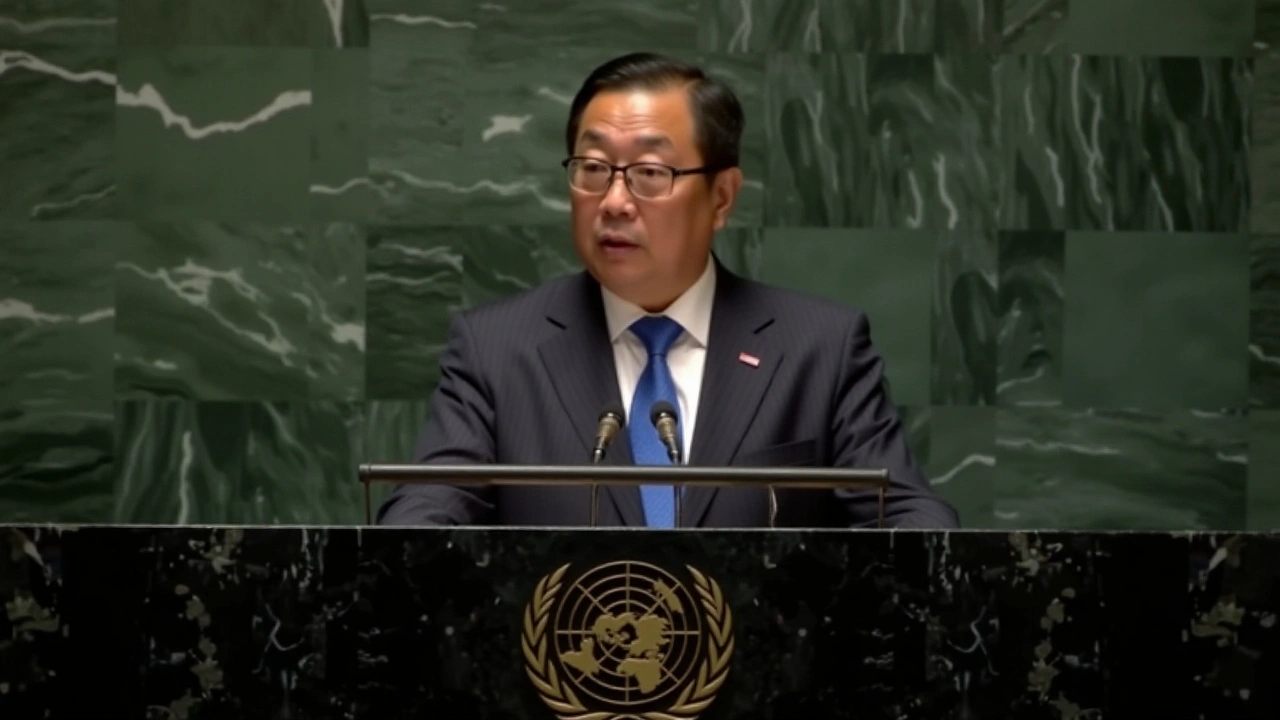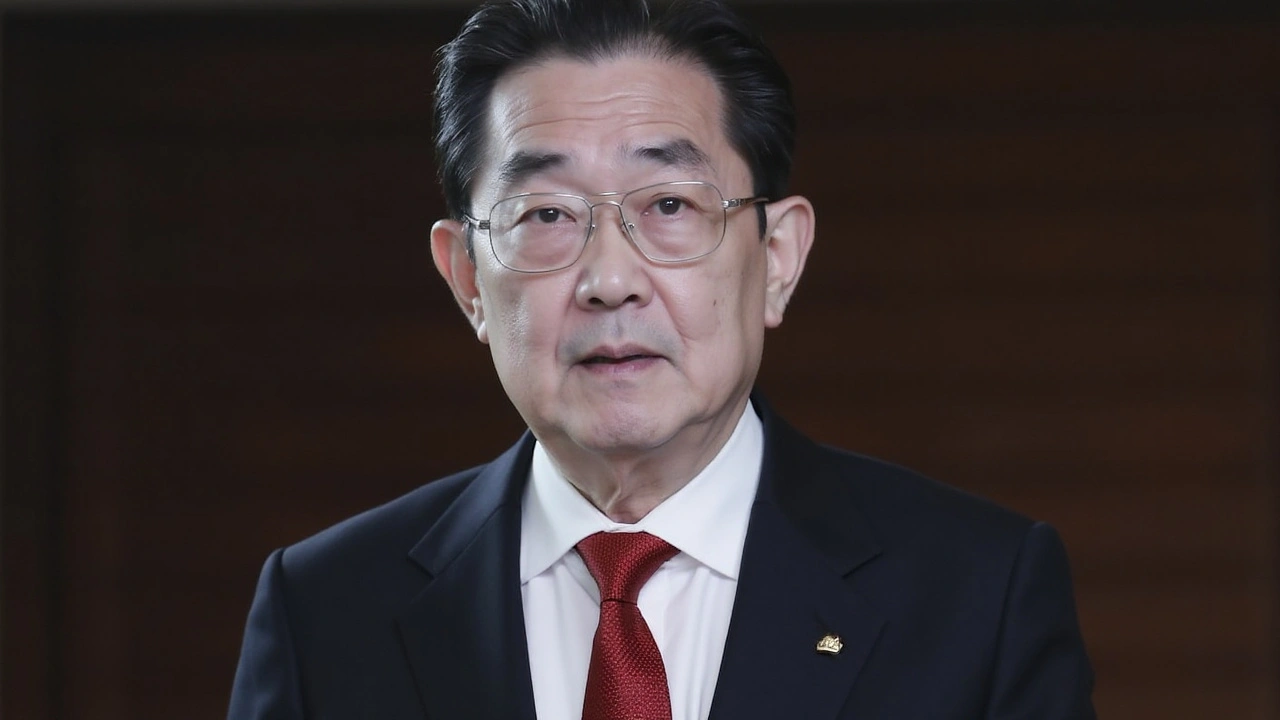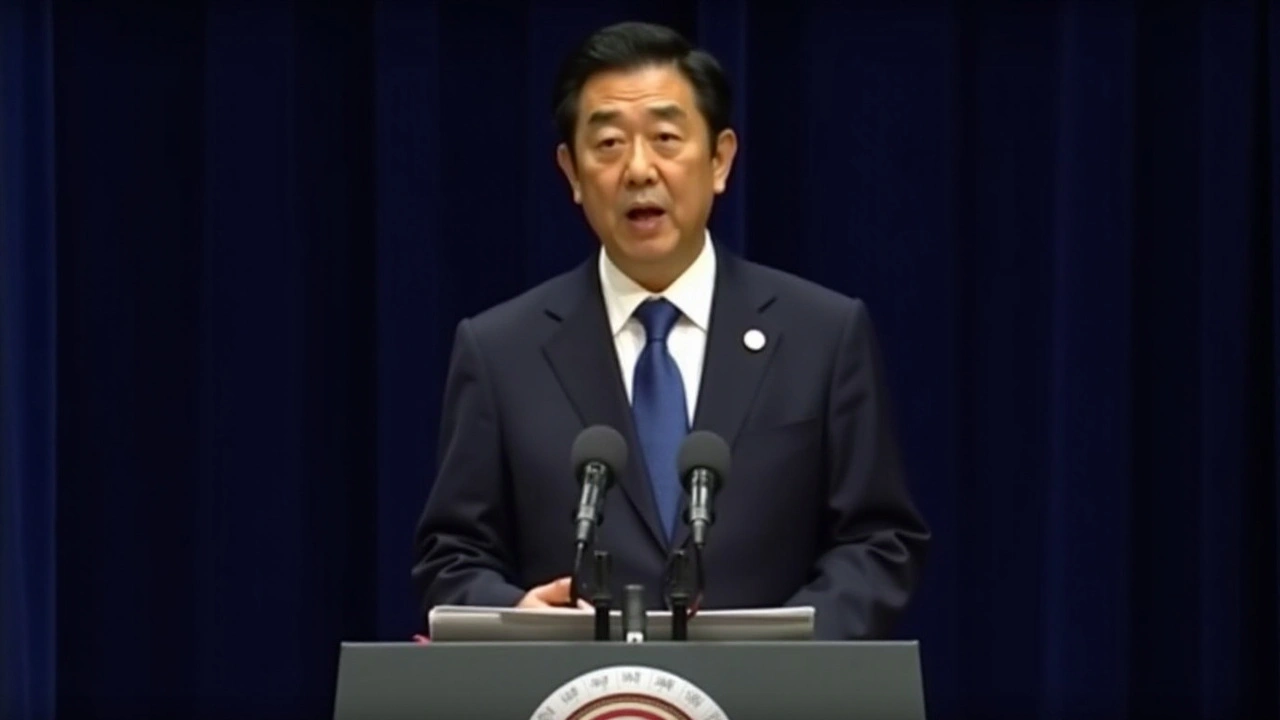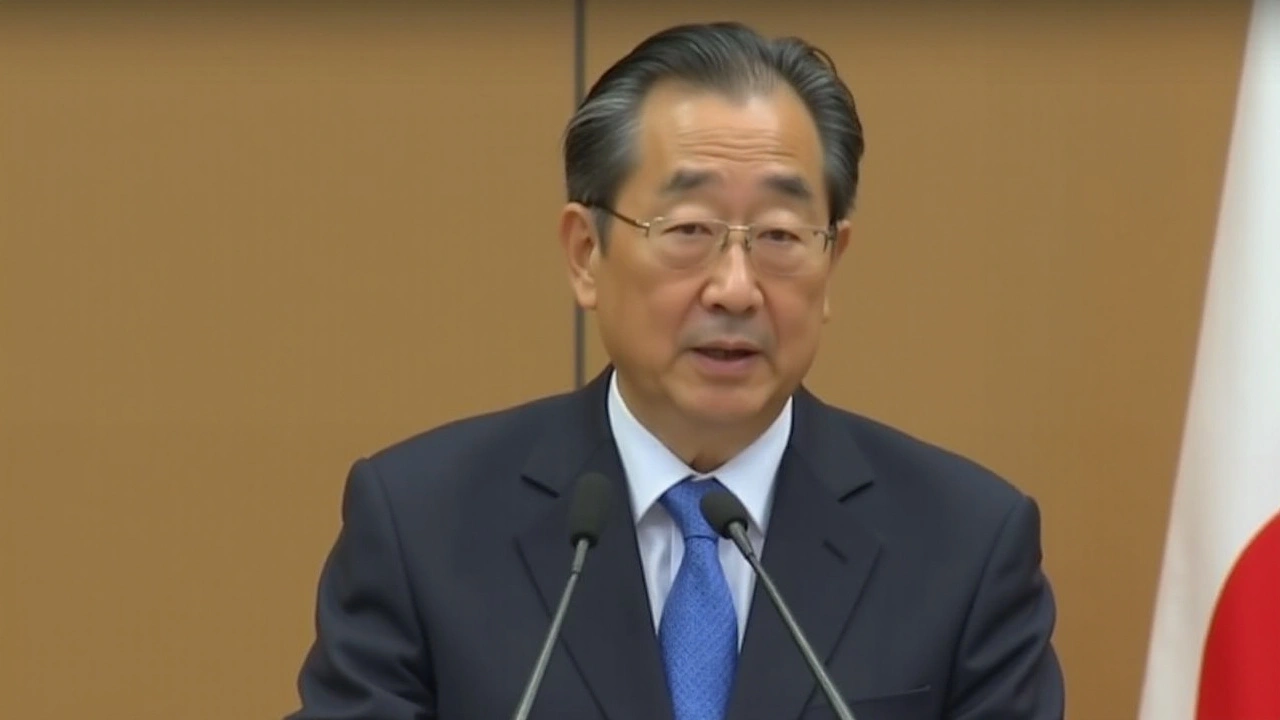Introduction
In a surprising move, Japanese Prime Minister Fumio Kishida announced on August 14 that he will resign from his position next month and will not participate in the upcoming vote to elect a new chief for the ruling Liberal Democratic Party (LDP). This decision comes at a time when his administration faces significant political challenges, including plummeting approval ratings, alleged corruption, and economic struggles. Kishida’s resignation marks a pivotal moment for Japan’s political landscape, signaling an imminent leadership change in the country.
Plummeting Approval Ratings
Fumio Kishida, who took office as Prime Minister in 2021, has seen a dramatic drop in public support. Recent polls indicated that his approval rating had sunk to a perilous 20%, a number reflecting widespread discontent among the populous. This decline has been attributed to multiple factors, including his administration's handling of key issues, persistent corruption scandals, and ineffective economic policies. The steep drop in approval is particularly striking for a leader who initially enjoyed considerable support for his vision of economic revitalization and social reforms.

Corruption Scandals
The Kishida administration has been beleaguered by a series of corruption scandals that have significantly tarnished its reputation. Notably, a slush fund scandal has come to light, implicating lawmakers from various factions within the LDP. These lawmakers reportedly failed to account for over 600 million yen in campaign contributions, raising serious questions about the transparency and accountability within the party. These scandals have eroded public trust and cast a long shadow over Kishida's tenure.
Party Ties to the Unification Church
Adding to the administration's woes, the LDP’s connections to the controversial Unification Church have further compounded public distrust. This religious organization came under intense scrutiny following the assassination of former Prime Minister Shinzo Abe, with allegations surfacing about its influence over public policy. The Church’s affiliation with political players has been criticized for compromising political integrity and undermining democratic values. Kishida’s inaction in distancing his party from such entities has only deepened the public's disenchantment.
Economic Challenges
Economically, Kishida's vision of combating deflation and promoting a 'new capitalism' has faced substantial hurdles. The yen's persistent weakness and surging living costs have stymied these efforts, leading to economic stagnation rather than the anticipated revival. While Kishida managed to pass a law aimed at addressing Japan's declining birth rate, these economic strides were overshadowed by broader systemic issues. Public perception of Kishida’s economic policies has thus been largely negative, as everyday realities starkly contradicted governmental assurances of prosperity.
Economic Policy Missteps
Another critical aspect of Kishida's economic challenges lies in his administration's missteps in policy execution. Strategies to stimulate growth and alleviate financial pressure on the average citizen were met with limited success. Measures like fiscal stimuli and initiatives to boost domestic consumption did not yield the anticipated results, largely due to global economic conditions and intrinsic market weaknesses. Moreover, the gap between policy intent and actual implementation left many skeptics questioning the administration’s competency.

A Divisive Tenure
Kishida’s tenure also highlighted deep-seated divisions within Japanese politics. His alignment with the liberal Kōchikai faction of the LDP signified a more centrist approach compared to the party’s conservative wings. This ideological diversity within the ruling party often resulted in internal conflicts, making cohesive governance challenging. Kishida's attempts to navigate these factions while pushing forward his agenda revealed the profound complexities of leading a party with varied political inclinations.
Impact on Public Trust
Public trust in political leaders is vital for effective governance, and Kishida’s administration has struggled to maintain this trust. The combination of scandals, economic underperformance, and controversial affiliations dramatically soured public opinion. Kishida's acknowledgment that 'politics cannot function without public trust' underscores the critical nature of this sentiment. His decision to step down reflects an understanding that a new direction is necessary to restore the public's faith in their leadership.
Looking Forward
With Kishida’s resignation, Japan stands at a crossroads. The upcoming election for a new LDP leader will be crucial in determining the country's future direction. The candidates vying for this position will need to address the root causes of the challenges Kishida faced, from ensuring transparency and combating corruption to implementing effective economic policies. Additionally, rebuilding public trust will be paramount.
Kishida's departure creates an opportunity for a fresh start, allowing the LDP to potentially redefine its image and policies. The new leader's approach to governance, and their ability to unite the party’s diverse factions, will be critical in shaping Japan’s political and economic fabric in the years to come.

Conclusion
Fumio Kishida's tenure as Prime Minister of Japan has been marked by significant challenges. From plummeting approval ratings and intricate scandals to unfulfilled economic promises, the cumulative impact of these issues has paved the way for his decision to resign. This pivotal moment in Japanese politics opens the door for new leadership within the LDP, presenting both challenges and opportunities for the party and the nation.
As Kishida steps aside, the political landscape in Japan faces an unpredictable but potentially transformative phase. The effectiveness of the forthcoming leadership in addressing the prevailing concerns and setting a renewed course will be critical in determining Japan's trajectory in the near future. All eyes will be on the LDP as they elect a new chief and prime minister, and on how this change will resonate with the people of Japan and on the global stage.







Posts Comments
Derek Pholms August 16, 2024 AT 18:21
So Kishida’s resignation isn’t really a surrender-it’s a strategic retreat. The LDP’s rot runs deeper than one PM. The Unification Church ties? The slush funds? These aren’t outliers; they’re institutional features. Japan’s political economy is a cathedral built on silent bribes and ceremonial apologies. The real question isn’t who replaces him-it’s whether the architecture can survive deconstruction.
Akul Saini August 18, 2024 AT 01:40
The structural dysfunction here is textbook institutional capture. The LDP’s factionalism, combined with the regulatory capture by religious entities and campaign finance opacity, represents a classic case of path dependency in democratic erosion. Kishida’s policy outputs were statistically negligible in terms of GDP impact, yet the normative cost-public trust-was catastrophic. A governance failure of systemic proportions.
Stephanie Reed August 18, 2024 AT 12:37
I just hope the next leader actually listens to people instead of just listening to donors. It’s exhausting watching a whole country get ignored for years. Maybe this is the reset we needed.
Mark Dodak August 19, 2024 AT 10:06
I’ve lived in Tokyo for 12 years. The disconnect between the political class and the average citizen here is staggering. I’ve seen elderly folks choosing between medicine and groceries because of inflation, while politicians debate symbolic reforms and church donations. Kishida didn’t fail because he was weak-he failed because the system is designed to protect itself, not the people. This resignation? It’s not change. It’s a rearranging of deck chairs on a sinking ship.
Arvind Singh Chauhan August 20, 2024 AT 17:56
You know what’s tragic? Not that he resigned-but that no one is surprised. We’ve normalized decay. We’ve turned corruption into a cultural footnote. The Unification Church scandal? It’s not even headline news anymore. We’ve become numb to the slow bleed of our democracy. And now we’re supposed to cheer for a new face in the same suit? Don’t flatter yourself. This isn’t renewal. It’s rebranding.
musa dogan August 21, 2024 AT 01:07
Oh honey, this ain’t politics-it’s a telenovela with better tea. The slush funds? The church cult? The yen collapsing like a soufflé? Kishida didn’t resign-he got ghosted by his own party and the gods of economic fate. The LDP is a haunted mansion with 300 ghosts wearing suits. The next PM? They’ll just turn the lights on and pretend the ghosts aren’t whispering in their ears.
Sonu Kumar August 22, 2024 AT 10:58
The economic policy missteps are not merely tactical-they are epistemological. Kishida’s ‘new capitalism’ was a semantic shell game: rebranding trickle-down as ‘inclusive growth’ while ignoring the structural deflationary pressures rooted in demographic collapse and labor market rigidity. The policy architecture was never designed for resilience-it was designed for photo ops. The real failure? The intellectual laziness of a technocratic elite that mistakes jargon for substance.
Jason Lo August 23, 2024 AT 08:20
Let’s be honest: Kishida was never the problem. He was the scapegoat. The real criminals are the LDP elders who’ve been selling out Japan for decades. The church connections? The slush funds? Those were family heirlooms. He didn’t break the system-he inherited it. And now they’re dumping him like last week’s sushi to buy themselves time. Pathetic.
Brian Gallagher August 23, 2024 AT 16:41
The resignation presents a critical juncture for institutional recalibration. The LDP must undertake a comprehensive governance audit-specifically targeting campaign finance transparency, ecclesiastical influence mitigation, and intergenerational equity in fiscal policy. Without structural reform, any leadership transition will constitute mere procedural theater. The public’s disenchantment is not emotional-it is rational. And rational disaffection cannot be remedied by charisma alone.
Akshat Umrao August 24, 2024 AT 13:24
I just hope whoever comes next remembers that people aren’t numbers or voters-they’re moms skipping meals, retirees choosing between insulin and rent. Maybe this is the moment to actually listen. 🙏
Elizabeth Alfonso Prieto August 24, 2024 AT 22:51
i just read this and i cried. like, seriously. how can you let this happen? theyre all just in it for the money and the power and nobody cares about real people anymore. i hate this. #justice
Harry Adams August 26, 2024 AT 19:24
The entire LDP apparatus is a performative farce. Kishida’s resignation is the latest in a decades-long tradition of elite self-preservation. The corruption scandals? Predictable. The Unification Church entanglements? A footnote. The economic stagnation? Inevitable under a party that equates policy with press releases. The real tragedy isn’t his departure-it’s that no one expects anything to change.
Kieran Scott August 27, 2024 AT 12:08
Let’s not romanticize this. Kishida didn’t ‘step down’-he was exiled. The LDP doesn’t tolerate failure, only failure that’s convenient. The ‘new capitalism’ was a hollow slogan wrapped in PowerPoint slides. The yen’s collapse? Not an accident. It was the market’s verdict on a regime that confused optics with outcomes. And now they’ll pick another technocrat who’ll say the same things in a slightly different accent. This isn’t renewal. It’s recycling.
sunil kumar August 28, 2024 AT 11:54
It's worth noting that Japan's political culture has historically prioritized consensus over confrontation. Kishida’s moderate stance within the Kōchikai faction, while admirable in principle, rendered him ineffective against the entrenched power structures within the LDP. His resignation may be interpreted not as an admission of failure, but as a recognition that the current institutional framework cannot accommodate incremental reform. A more radical restructuring may be the only viable path forward.
Write a comment